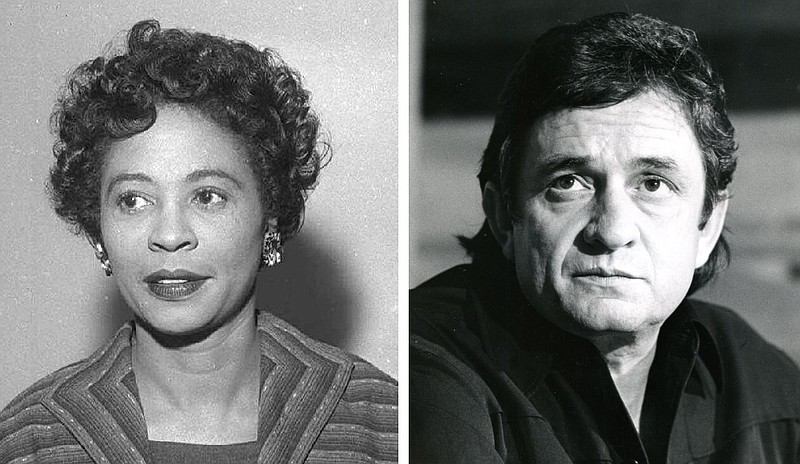Arkansas has whittled the potential artists for two new statues to represent the state in the U.S. Capitol down to three finalists for each sculpture.
Using a rubric that took into account experience and examples of notable work, among other criteria, the Capitol Arts and Grounds Commission and the Statuary Selection Committee scored each of the 31 applicants to determine the artists who will create models of what their final sculptures would look like.
Last year, 15 sculptors submitted qualifications to the secretary of state's office to design and cast a statue of Little Rock Nine mentor Daisy Gatson Bates, and 16 sculptors submitted qualifications to do the same work on a statue of musician Johnny Cash.
The three finalists for sculpting Cash's likeness are Benjamin Victor of Boise, Idaho; Kevin Kresse of Little Rock; and Craig Campbell of Wichita, Kan.
Victor was also among the three finalists for designing and casting a sculpture of Bates. The other two finalists were Jane DeDecker of Loveland, Colo., and J. Brett Grill of Grand Rapids, Mich.
Kurt Naumann, director of administration and government relations for Republican Secretary of State John Thurston, said the next step is for the Statue Selection Committee to prepare an information package for the finalists over the next few weeks. The package will include specific background from Bates' and Cash's families as well as some instruction on what the model should look like.
"What we want to do is make sure that all the finalists get the same information so there's not any preferential treatment or misunderstandings" that would be perceived as being unfair, Naumann told the commission.
The finalists are to create clay models 24 to 36 inches tall to show what their final sculptures, which will be bronze, would look like.
At Tuesday's meeting, the commission opted to give the finalists until June 4 to complete the models.
Naumann said he would begin discussing the budget with the artists in broad terms, then negotiate the contracts once the final artist or artists are selected.
Since Victor is a finalist for both statues, Commissioner Stephen Horton suggested taking the finalists' schedules into account when selecting the No.1 artists to ensure both statues will be completed within a reasonable time frame.
Naumann said scheduling could be built into ranking criteria, or the panels could have the artists choose one statue over the other.
Under a schedule outlined in the secretary of state's request for qualifications, the two statues must be completed and ready for shipment to Washington by Dec. 31, but that deadline could be extended.
Republican Gov. Asa Hutchinson, who is in his final term, has said he is committed to having both statues installed before he leaves office in January 2023.
Under Act 1068 of 2019, the Arkansas Legislature ordered the replacement of Arkansas' century-old statues of late attorney Uriah Rose and late U.S. Sen. and Gov. James P. Clarke in the U.S. Capitol with likenesses of Bates and Cash.
Congress passed a law in 1864 inviting each state to submit up to two bronze or marble statues to be placed in Statuary Hall. As the number of statues grew, they spread into other areas in the U.S. Capitol.
Act 1068 requires Arkansas' secretary of state to receive funds for the replacement effort. The funds can include appropriations, private gifts, grants, and donations from individuals and organizations. Donations are to be made to the Foundation of Arkansas Heritage and History, a nonprofit that supports the Division of Arkansas Heritage.
As of Tuesday, the foundation had raised $510,000 toward the effort and has $455,842 of that amount, according to Debra Fithen, grants manager for the Division of Arkansas Heritage.
About $450,000 came from top contributors, including Kelly and Steuart Walton, Walmart, the city of Little Rock, Crown Merchandise, the Murphy Family Foundation, Murphy USA Charitable Foundation, Sony Music Group, Simmons Bank and the Tyson Family Foundation, according to a list Fithen provided.
Little Rock's contribution of $45,000 was paid in a legal settlement tied to the removal of a Confederate statue, which sat on a state easement, from the grounds of MacArthur Park.
